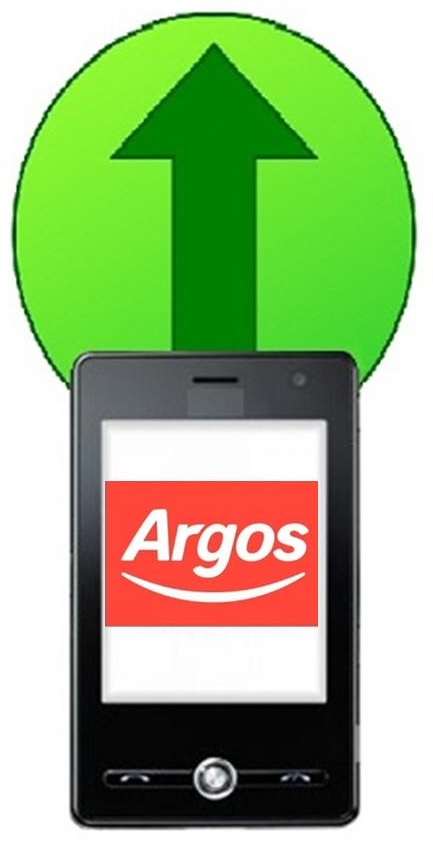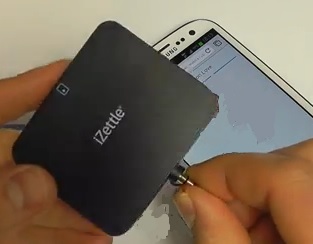The company’s online transformation is now a year old and is proving to have been highly worthwhile.
Argos has announced that in the first half of its financial year, its mobile commerce has over doubled and is now representing 16 percent of its total online sales, only one year after having redesigned its entire digital existence.
Approximately 43 percent of all of its sales were made online, illustrating the growing importance of digital.
This figure includes the Check & Reserve service use, which experienced a 124 percent mobile commerce growth over smartphones and tablets, combined. This was led by a new app that was released for both of those devices. Overall, in the multichannel sales experienced by the company are now representing 52 percent of the total sales at Argos. During that period, it represented £899 million in sales.
At the same time, Homebase, an Argos sister company has also seen extensive mobile commerce growth.
 Within the half year period, Homebase saw a growth in its own multichannel sales by 28 percent. Both of those companies are owned by Home Retail Group. Overall, that organization saw a rise in sales of 3 percent, reaching £2.6 billion within the 26 weeks that ended on August 31. This includes the figure contributed by mobile commerce.
Within the half year period, Homebase saw a growth in its own multichannel sales by 28 percent. Both of those companies are owned by Home Retail Group. Overall, that organization saw a rise in sales of 3 percent, reaching £2.6 billion within the 26 weeks that ended on August 31. This includes the figure contributed by mobile commerce.
At Argos, like-for-like sales increased by 2.3 percent, whereas at Homebase, those sales increased by 5.9 percent. That said, at the same time, there was a 70 decrease in pre-tax profits, which dropped to £14.2 million from having been £46.7 million during the same period in 2012. This is explained because last year the organization was able to benefit from a very large credit of £35 million. This year, it faced a cost of £12.6 million instead of a credit. This had to do with the expenses of its “restructuring actions” such as its digital transformation program.
At the same time, if all of those offline, online, and mobile commerce costs are not taken into account, then the benchmark pre-tax profits brought in £27.4 million, which is an increase of 53 percent over the £17.9 million that was seen last year.
Vendors of the publication can now accept transactions over a smartphone or tablet.
iZettle, a Swedish company that provides social and mobile payments services, has now entered into a partnership with the magazine called Situation Sthlm, which is a publication that is sold in Stockholm by homeless people as a part of a program that provides them with the opportunity to earn money.
The transaction business is now working with the magazine company to help to make those sales easier.
iZettle announced that it will be working with the magazine by providing the sellers of the publication with smartphones and card readers. This will allow those sellers to be able to use mobile payments technology to accept payments on the spot, from the buyer’s credit or debit cards. No matter where the seller may be, as long as he or she has a cell phone signal, it will be possible to accept these digital transactions, instead of having to rely wholly on cash.
This agreement is the result of a successful mobile payments trial program that has now been completed.
 The trial using the mobile payments services ran for a full month through five sellers who were provided with smartphones and a card reader from iZettle. This gave them the ability to expand the acceptable transactions from cash to credit and debit, as well. To use the service, vendors simply plug the card reader into the smartphone. The customers could then swipe their cards and either sign on the device screen or use a PIN to be able to complete the purchase.
The trial using the mobile payments services ran for a full month through five sellers who were provided with smartphones and a card reader from iZettle. This gave them the ability to expand the acceptable transactions from cash to credit and debit, as well. To use the service, vendors simply plug the card reader into the smartphone. The customers could then swipe their cards and either sign on the device screen or use a PIN to be able to complete the purchase.
The smartphones that are used for the mobile payments program are collected – along with the card readers – from the central offices every day at the same time that the sellers obtain the magazines that they sell.
iZettle provides both the hardware and the mobile payments software in this agreement so that the sellers would be able to convert their tablets or smartphones into a type of credit and debit card terminal that works on the go. They also provide their services to other merchants and are compliant with EMV (Europay, MasterCard, and VISA) standards in addition to the PCI-DSS (Payment Card Industry Data Security Standards).
 Within the half year period, Homebase saw a growth in its own multichannel sales by 28 percent. Both of those companies are owned by Home Retail Group. Overall, that organization saw a rise in sales of 3 percent, reaching £2.6 billion within the 26 weeks that ended on August 31. This includes the figure contributed by mobile commerce.
Within the half year period, Homebase saw a growth in its own multichannel sales by 28 percent. Both of those companies are owned by Home Retail Group. Overall, that organization saw a rise in sales of 3 percent, reaching £2.6 billion within the 26 weeks that ended on August 31. This includes the figure contributed by mobile commerce.
 The trial using the mobile payments services ran for a full month through five sellers who were provided with smartphones and a card reader from iZettle. This gave them the ability to expand the acceptable transactions from cash to credit and debit, as well. To use the service, vendors simply plug the card reader into the smartphone. The customers could then swipe their cards and either sign on the device screen or use a PIN to be able to complete the purchase.
The trial using the mobile payments services ran for a full month through five sellers who were provided with smartphones and a card reader from iZettle. This gave them the ability to expand the acceptable transactions from cash to credit and debit, as well. To use the service, vendors simply plug the card reader into the smartphone. The customers could then swipe their cards and either sign on the device screen or use a PIN to be able to complete the purchase.